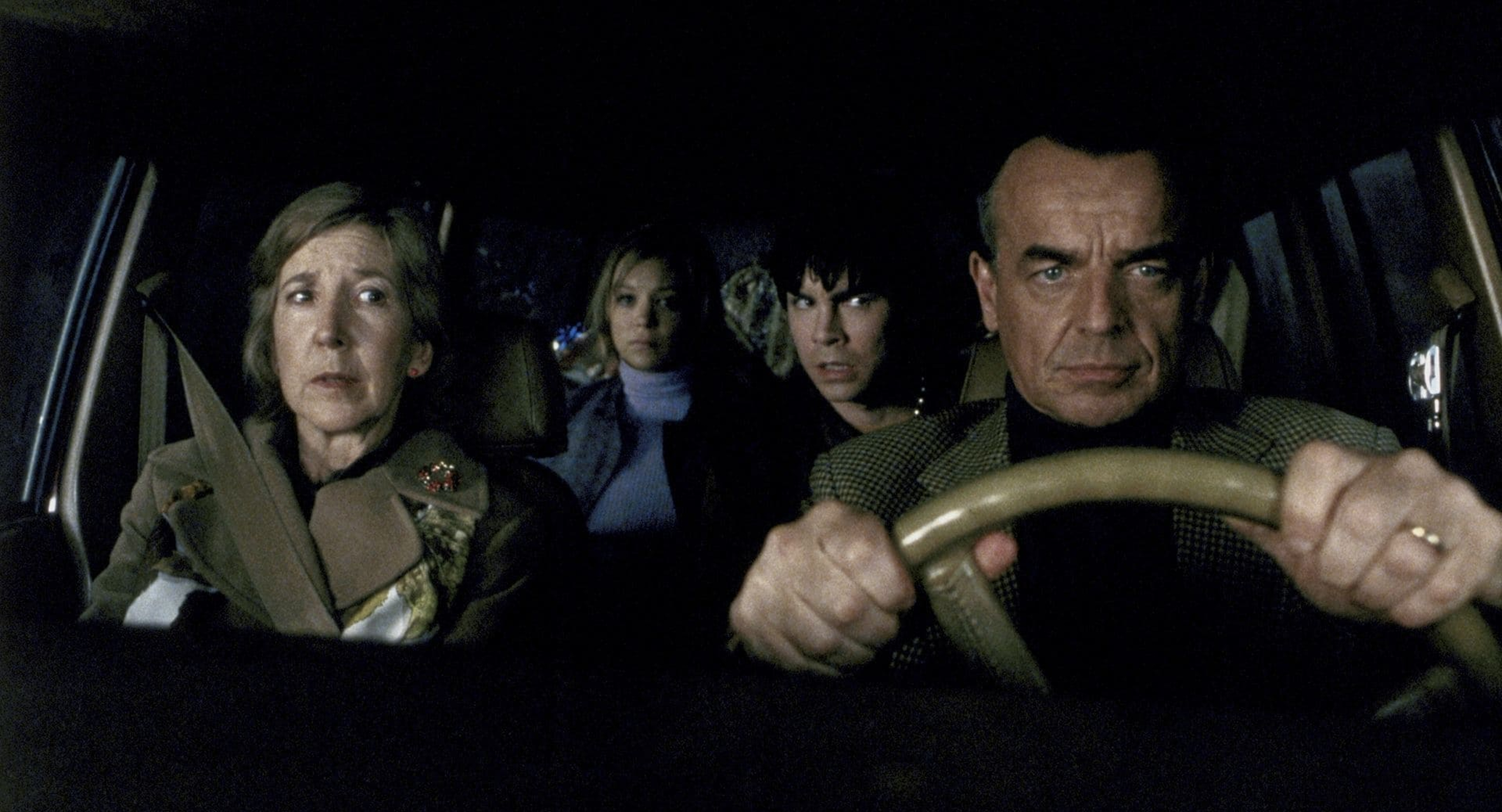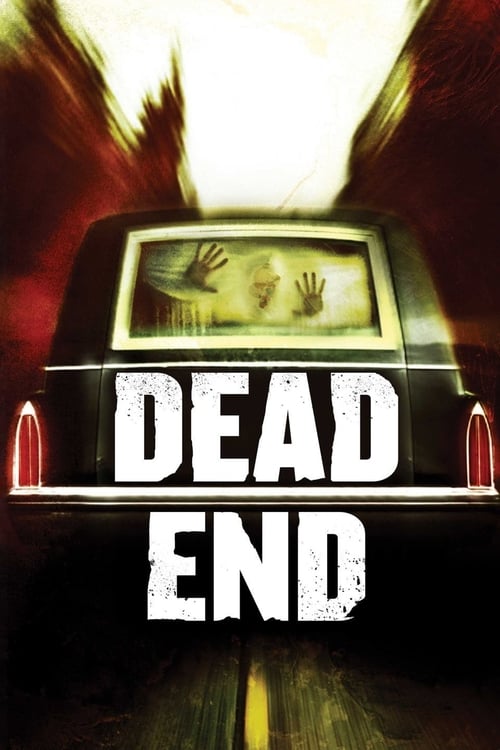Dead End – Film Review
Published January 2, 2024

Dead End, directed by Jean-Baptiste Andrea and Fabrice Canepa, presents an intriguing premise, blending elements of psychological horror and mystery within the confines of a claustrophobic setting. While the film adeptly builds tension and delivers several spine-tingling moments, its potential is undermined by an uneven narrative and an unsatisfying resolution.
Set against the backdrop of a seemingly endless road journey, the story follows the Harrington family—Frank (Ray Wise), his wife Laura (Lin Shaye), their son Richard (Mick Cain), daughter Marion (Alexandra Holden), and Richard’s girlfriend, Ginny (Amber Smith). As they embark on their annual Christmas trip to visit relatives, they opt to take a detour down an unfamiliar road, despite Frank’s reservations.
The film’s strength lies in its skillful establishment of an ominous atmosphere from the outset. The desolate road, enveloped in an eerie fog, sets the stage for the family’s descent into an increasingly surreal and nightmarish situation. The directors effectively employ suspense-building techniques, utilizing the isolation of the setting to create a sense of foreboding.
The performances by the cast, particularly Ray Wise and Lin Shaye as the parental figures grappling with escalating tension, are commendable. Wise brings depth to his portrayal of Frank, a determined patriarch attempting to navigate the unnerving circumstances, while Shaye’s portrayal of Laura exudes a palpable sense of unease and vulnerability.
One of the film’s standout elements is its utilization of dark humor, interspersed cleverly throughout the narrative. The injection of levity amidst the escalating tension offers brief moments of relief for the audience, enhancing the overall viewing experience. However, the balance between horror and humor occasionally feels slightly askew, detracting from the film’s intended impact.
As the family’s journey continues, the introduction of a mysterious woman in white (played hauntingly by Amber Tamblyn) adds another layer of intrigue to the narrative. Tamblyn’s enigmatic performance adds an unsettling quality, contributing to the film’s increasingly surreal atmosphere.
Where Dead End falters is in its execution of the plot’s resolution. The gradual escalation of tension and the intricately woven mysteries fail to culminate in a satisfying payoff. Instead, the conclusion feels rushed and convoluted, leaving several unanswered questions and loose ends. The film’s attempt at a twist ending falls flat, leaving audiences more bewildered than intrigued.
Furthermore, the film’s reliance on familiar horror tropes and conventions, while effective in parts, ultimately prevents it from carving out a truly distinctive identity. The narrative, though initially promising, succumbs to predictability in its later stages, diminishing the impact of its earlier suspense-building efforts.
Visually, Dead End makes effective use of its limited setting, utilizing lighting and cinematography to create an unnerving ambiance. The tight framing and dimly lit scenes contribute to the feeling of confinement and unease, enhancing the audience’s immersion into the characters’ disconcerting journey.
In terms of pacing, the film maintains a steady momentum for the most part, keeping viewers engaged as the tension steadily mounts. However, the rushed and unsatisfactory conclusion disrupts the otherwise well-maintained pacing, resulting in a jarring experience for the audience.
Dead End succeeds in generating a palpable sense of dread and intrigue, buoyed by commendable performances and an effectively eerie atmosphere. However, its inability to deliver a cohesive and fulfilling resolution diminishes its overall impact. Despite its initial promise, the film’s shortcomings prevent it from transcending the boundaries of a standard psychological thriller, leaving audiences with a sense of unfulfilled potential.
In the realm of psychological horror, Dead End stands as a moderately engaging entry but falls short of achieving the greatness its premise and early build-up suggest. Fans of atmospheric thrillers may find moments of enjoyment in its suspenseful journey, but the ultimate destination may leave them wanting.
